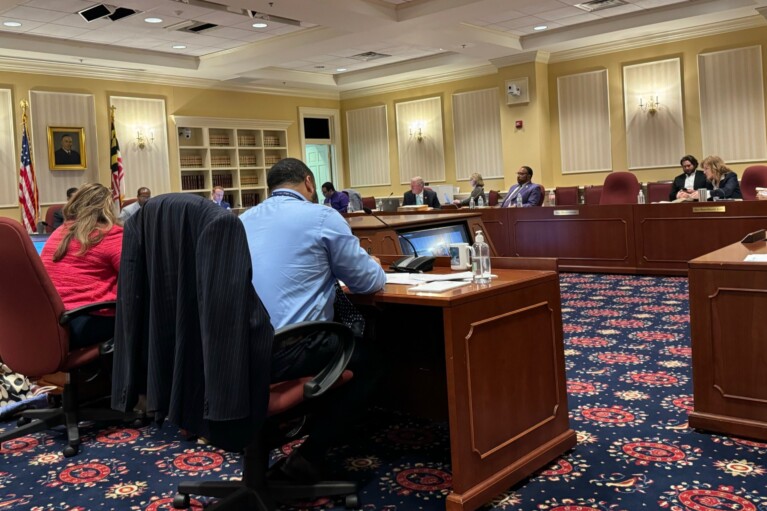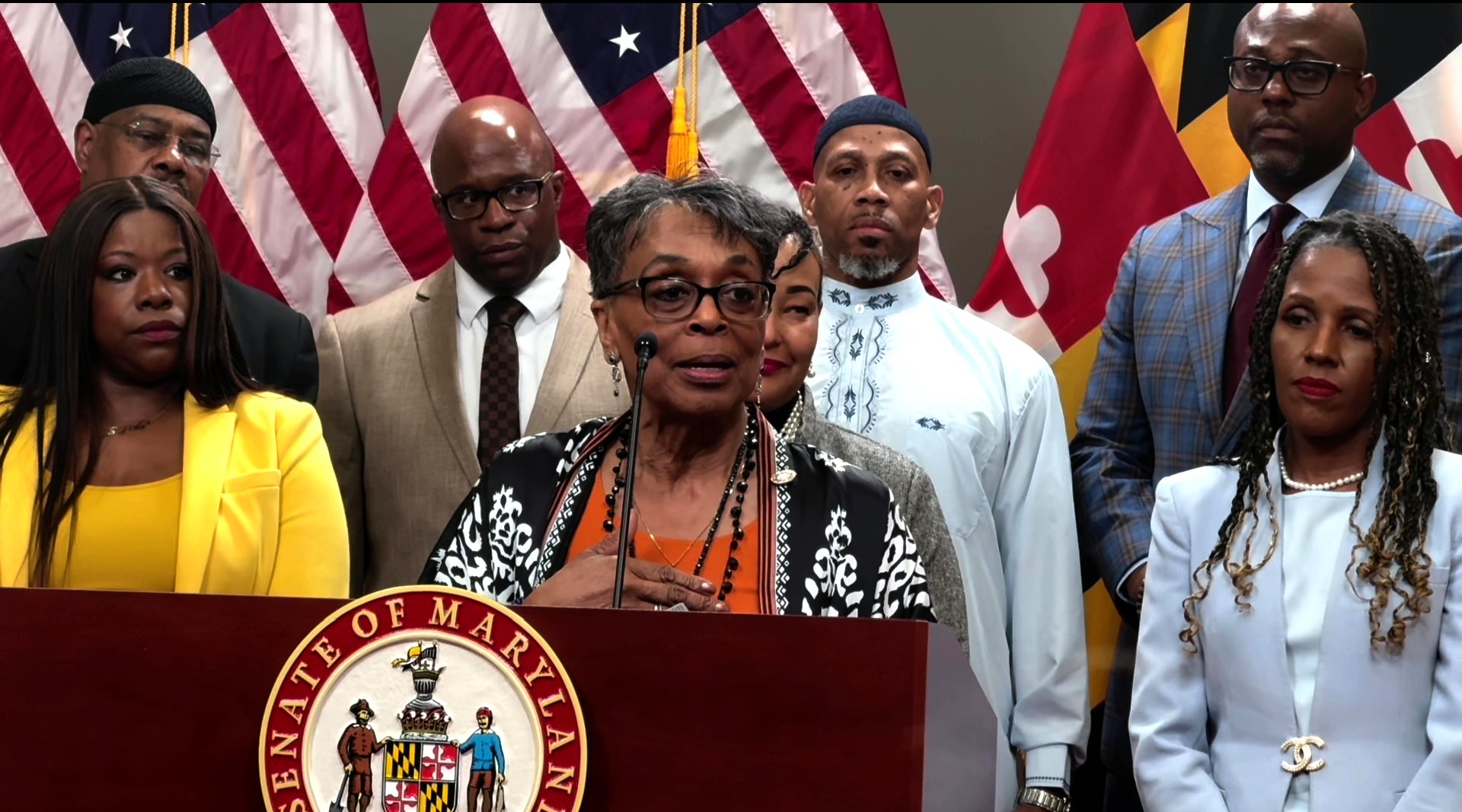Youth Interrogation Protection Act Advances in the Senate

The Senate Judicial Proceedings Committee voted to move a bill to protect children from being coerced into providing false confessions to police to the Senate floor Monday afternoon.
Sponsored by Sen. Jill P. Carter (D-Baltimore City), Senate Bill 53, or the Child Interrogation Protection Act, would require that kids be allowed to consult with an attorney and an effort be made to contact their legal guardian before they undergo interrogations in police custody.
These interrogations, known as custodial interrogations, occur when the person being questioned by police believes they are unable to leave.
The bill was initially taken up for a committee vote Friday when the room was filled with over a dozen advocates waiting in the wings.
Before the committee broke to head to the Senate floor last week, the legislation was amended to let the courts determine if the interrogation of a child without consulting a lawyer is admissible based on evidence that the child gave a “knowing, voluntary and intelligent” statement.
Monday’s brief voting session further altered the bill, changing the language to allow police to interrogate without letting kids consult an attorney if an officer believes that the child has information necessary to protect against public safety threats and the questions posed are limited to threat prevention.
This was adopted and conformed the bill’s policy to match current exceptions to questioning adults without reading them their Miranda rights.
Sen. Robert G. Cassilly (R-Harford) offered an amendment to remove a portion of the bill that would make statements children give to police inadmissible in delinquency proceedings, or juvenile court, if the officer knowingly and willfully refuses to comply with the other standards of the legislation.
“…Delinquency proceedings are there to provide the child with the services they need … and I think that we ought to — whenever possible — err on the side of getting a child’s life back on track,” he said. “If the police officer messed up or not, let’s get the child’s life back on track and not used as a teaching moment for the officer.”
Carter argued in opposition to his amendment, saying that juvenile court proceedings end in findings that could result in detention “and then could be used in subsequent processes to up the ante in terms of what type of penalty they could get.”
She also objected to the provision’s application when officers knowingly decide to interrogate minors in violation of the other standards of the bill.
“It’s their job, actually, to know and the language is … willful language — it’s not accidental,” said Carter.
In his final plea to his colleagues to support his amendment, Cassilly said that “there’s enough juvenile blood, already, in the streets in the state of Maryland.”
“We need to bring some peace to the juveniles of this state because, right now, it’s a bloodbath of epic proportions and we’re certainly sending the wrong message with this bill,” he said.
His amendment failed.
The bill, in full, passed out of the committee on a vote of 7-2.
The Senate Judicial Proceedings Committee is poised to take up other juvenile justice bills in a committee vote Tuesday.




 Creative Commons Attribution
Creative Commons Attribution